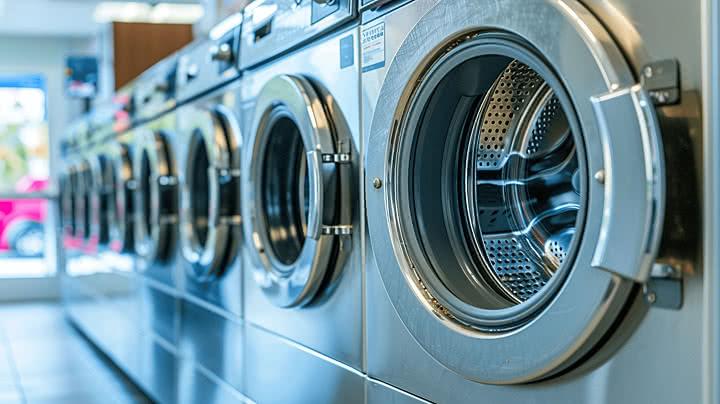
Sustainable Suds: Eco-Friendly Laundry Habits for a Greener Home
The simple act of doing laundry, a routine chore for billions, carries a surprisingly significant environmental footprint. From vast amounts of water and energy consumed to the chemicals released into our ecosystems, traditional laundry habits have long contributed to resource depletion and pollution. Understanding this impact is the first step towards fostering more sustainable practices within our homes and communities. For decades, the focus was primarily on convenience and efficacy, often overlooking the broader ecological consequences of our choices.
Historically, laundry has evolved dramatically, transforming from arduous manual labor to the push-button ease of modern machines. This technological leap, while liberating, also ushered in an era where the environmental cost became less visible. Early solutions for a quick turnaround, like a dedicated laundry service, prioritized speed and cleanliness. However, the sheer volume of water and electricity required, coupled with the prevalence of harsh detergents, quietly accumulated an ecological debt.
In recent years, a heightened awareness of environmental issues has sparked a shift in consumer behavior. People are increasingly seeking alternatives that align with their values, even when searching for a basic laundry near me. This demand has spurred innovation in eco-friendly products and services, from concentrated, biodegradable detergents to energy-efficient washing machines. The quest for cleanliness no longer needs to come at the expense of planetary health, driving a re-evaluation of our daily routines.
Initial research into sustainable laundry practices began by scrutinizing the core elements: water temperature, detergent composition, and machine efficiency. Scientists and environmentalists explored how simple changes, such as opting for cold water cycles or choosing plant-based cleaning agents, could dramatically reduce environmental strain. The challenge was, and remains, to balance effective cleaning with minimal ecological impact, ensuring our clothes are fresh without leaving a heavy footprint.
Key Insights from Sustainable Laundry Research 🔬
- Cold water washing has been consistently shown to be highly effective for most laundry loads, drastically cutting energy consumption without compromising cleanliness, thanks to advancements in detergent technology.
- The chemical makeup of detergents, particularly the presence of phosphates and synthetic fragrances, is a significant contributor to water pollution and aquatic ecosystem disruption.
- Over-washing garments not only wastes water and energy but also accelerates fabric degradation, highlighting the importance of mindful usage and extending clothing lifespan.
Analyzing the Green Laundry Revolution ♻️
The widespread adoption of cold water washing represents one of the most impactful changes individuals can make. For years, the myth persisted that hot water was essential for truly clean clothes. However, modern washing machines and enzyme-based detergents are specifically designed to perform optimally at lower temperatures. This simple switch can lead to a substantial reduction in household energy bills and significantly lower carbon emissions, making it a win-win for both your wallet and the planet.
Beyond temperature, the choice of detergent plays a pivotal role. Traditional detergents often contain phosphates, which contribute to algal blooms in waterways, depleting oxygen and harming aquatic life. The shift towards plant-based, biodegradable, and phosphate-free formulas is crucial. Consumers are now empowered to choose products that are not only effective but also gentle on the environment, ensuring that the water from their wash cycles doesn't become a source of pollution. 
Our relationship with clothing also influences laundry's environmental impact. The rise of "fast fashion" has led to a culture of frequent purchasing and discarding, often accompanied by excessive washing. By embracing mindful consumption and washing clothes only when truly necessary, we can extend the life of our garments, reducing textile waste and the resources expended on their production and care. This approach aligns with the principles of a circular economy.
Technological advancements in washing machines themselves are also contributing to greener habits. Energy Star certified appliances use significantly less water and electricity, and features like load-sensing technology ensure optimal resource use. For businesses like Hanging at the Laundry, investing in such high-efficiency machines is not just good for the environment but also a smart business decision, offering a superior and sustainable wash and fold experience.
The conversation around sustainable laundry extends to drying practices. Tumble dryers are notorious energy guzzlers. Opting for air-drying whenever possible, either on a clothesline outdoors or on an indoor drying rack, can drastically cut energy consumption. While not always feasible for everyone, especially those seeking a convenient professional laundry service, exploring these alternatives contributes to a holistic eco-friendly approach.
Ultimately, fostering eco-friendly laundry habits requires a blend of consumer awareness, technological innovation, and responsible business practices. Dispelling old myths and embracing new, greener methods is essential. Companies like Hanging at the Laundry are at the forefront, demonstrating that it's possible to deliver exceptional laundry care while upholding a commitment to environmental stewardship, setting a benchmark for the industry.
Actionable Takeaways for a Greener Home 🌿
- Embrace Cold Water: Make cold water your default setting for most laundry loads. It saves energy and is effective with modern detergents.
- Choose Wisely: Opt for eco-friendly, biodegradable detergents free of phosphates and harsh chemicals to protect waterways.
- Optimize & Air Dry: Run full loads, maintain your machine, and whenever possible, air-dry your clothes to reduce energy consumption and extend garment life.
Comments ( 0 )
Leave a comment